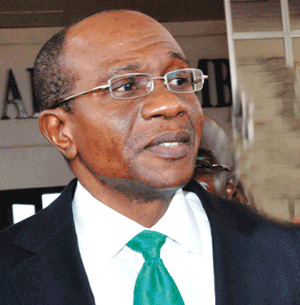• Nigeria’s over £500 million in foreign reserves may have depreciated in value to about N166.5 billion from N190 billion, a drop by N23.5 billion or 12.3 per cent.
• Decelerating British economy could impact a drop in investment, trade, and also remittances from the Nigerian Diaspora who sent home over $20 billion in 2015.
• Bilateral trade between Nigeria and the UK, currently valued at £6 billion and projected to reach about £20 billion by 2020, could also be affected.
• The shrinking of the British economy could affect Nigeria’s foreign earnings with recent data from the National Bureau of Statistics (NBS) showing that the UK was Nigeria’s largest source of foreign investment in 2015.
• The rental income of Nigerians who own property in the UK will be lower in naira terms.
By Kelechi Mgboji
Assistant Business Editor
A raft of risks on Brexit fears have started crystallising with Nigeria losing about N23.5 billion in value depreciation of its foreign exchange (forex) reserves held in pound sterling.
The forex reserves which stood at $26.50 billion May end as shown in central bank data, has about five percent in Pound Sterling, valued at about £500 million.
About equal percentage is held in Euros and Yuan (the Chinese currency); the rest of the reserve is in the United States dollars which constitutes more than 70 percent.
Before the surprise June 23 Brexit referendum, the value of the pound to the dollar was about $2.5 to £1 but as of Tuesday, July 5 the pound had plunged to 31-year low at $1.30.
In relation to the naira, the pound closed at about N333 to £1, down from about N360 to £1 at the official interbank market a fortnight ago, while at the parallel market, it crashed from N510 to £1 to about N380 to £1.
This implies that Nigeria’s over £500 million in foreign reserves may have depreciated in value to about N166.5 billion from N190 billion, a drop by N23.5 billion or 12.3 per cent.
However, the Central Bank of Nigeria (CBN) could not confirm depreciation of the foreign reserves due to Brexit risk.
Acting CBN Director (Corporate Communications), Isaac Okoroafor, told TheNiche in a telephone interview that the portion of the reserves held in pound is very negligible, and would not affect the total sum significantly.
He said the percentage volume of the reserve in pound is not static but fluctuates along the different movements in currencies, and prescriptions of fund managers regarding what the next move should be.
The plunge in value of the pound has been sustained in the last two weeks after the Brexit referendum, and TheNiche in house analysis showed that the country may have lost about N23.5 billion due to the sharp drop in the British currency valuation.
However, Okoroafor said the portion of the reserves held in pound is not substantial to warrant migration of the money to another currency.
The Bank of England (BoE) had warned on Tuesday, July 5 that risks to financial stability were materialising after Britain’s shock European Union (EU) exit referendum, as commercial property investors scrambled to pull money out on Brexit fears.
And Britain’s first government bond launch since the June 23 EU referendum returned a record-low yield of 0.382 per cent.
A shock result has sparked political and market chaos leaving the UK Financial Policy Committee with radical measures to cushion expected severe credit crunch.
On July 5, the BoE cut the British banking sector’s capital buffer rate from 0.50 per cent to zero, where it will stay until at least June 2017.
The move, according to the FPC, will boost lending by up to £150 billion ($199 billion, €179 billion euros) – and reduce banks’ regulatory capital buffers by £5.7 billion.
BoE Governor, Mark Carney, had earlier pledged to take “whatever action is needed” to support stability.
The BoE promised to pump at least £250 billion into money markets if needed to prevent a damaging credit crunch.
Analysts’ perspectives
Financial experts in Nigeria have expressed concern that Britain’s decision to leave the 28-nation EU could have a negative consequences on Nigerian economy considering its strong economic ties with Britain, as a member of the British Commonwealth.
They warned that Brexit will create anxiety for Nigeria’s policy makers.
Biodun Adedipe, Chief Consultant at B Adedipe & Associates, said decelerating British economy could impact a drop in investment, trade, and also remittances from the Nigerian Diaspora who sent home over $20 billion in 2015.
He made the point at the Chartered Institute of Bankers of Nigeria Centre for Financial Studies (CIBNCFS), a subsidiary of the Chartered Institute of Bankers of Nigeria (CIBN).
Adedipe said bilateral trade between Nigeria and the UK, currently valued at £6 billion and projected to reach about £20 billion by 2020, could also be affected.
In his view, the shrinking of the British economy could affect Nigeria’s foreign earnings with recent data from the National Bureau of Statistics (NBS) showing that the UK was Nigeria’s largest source of foreign investment in 2015.
Proshare Nigeria Chief Executive Officer, Femi Awoyemi, added that the rental income of Nigerians who own property in the UK will be lower in naira terms.
But CBN Director Monetary Policy, Moses Tule, calmed frayed nerves, assuring that Brexit will not to lead to a global economic crisis and that Nigerian investors should not be worried.
He said financial institutions are now more regulated, banks more capitalised, and the system more equipped to deal with the situation.
Tule insisted that the crisis in the UK will not affect any Nigerian banks, including the ones with subsidiaries abroad.











